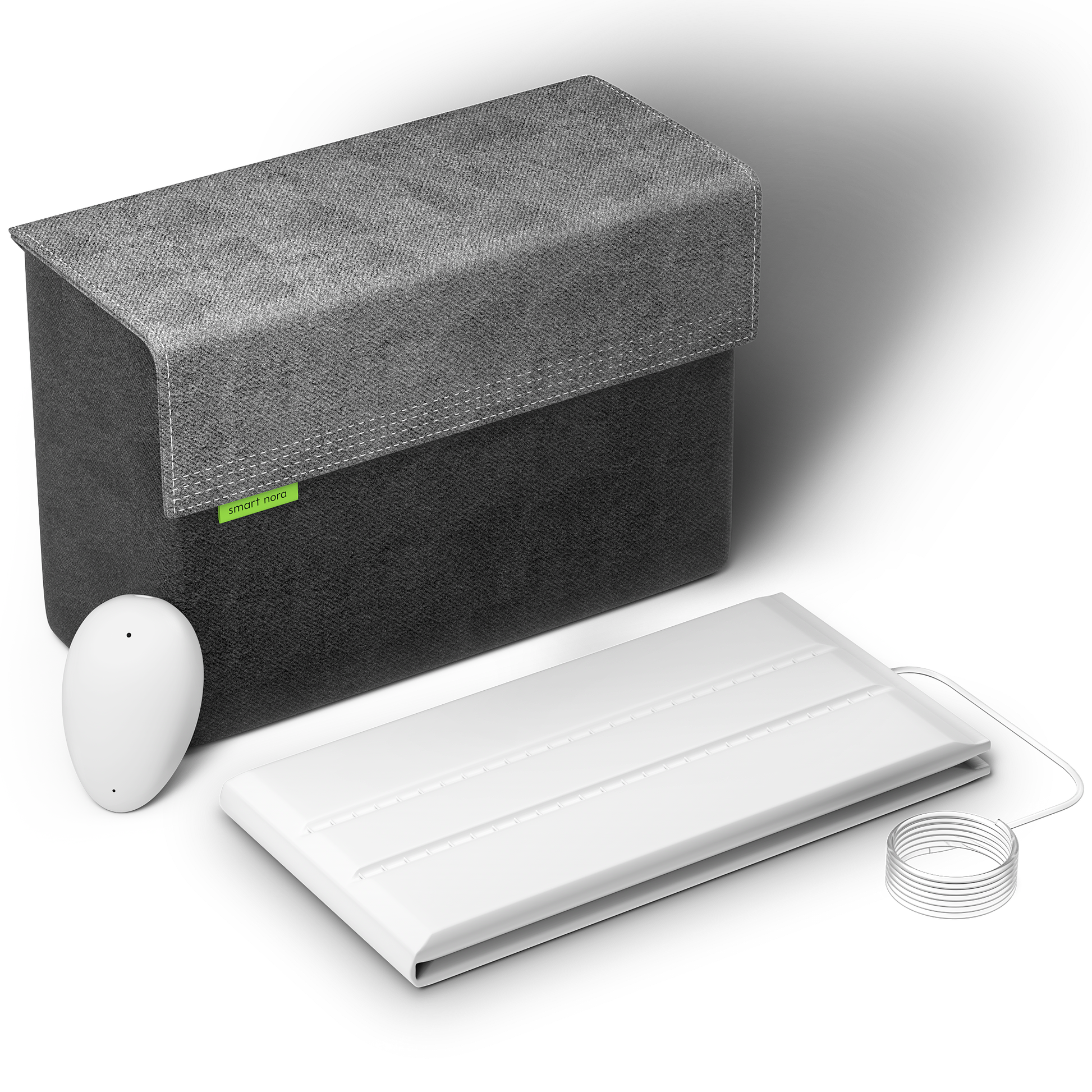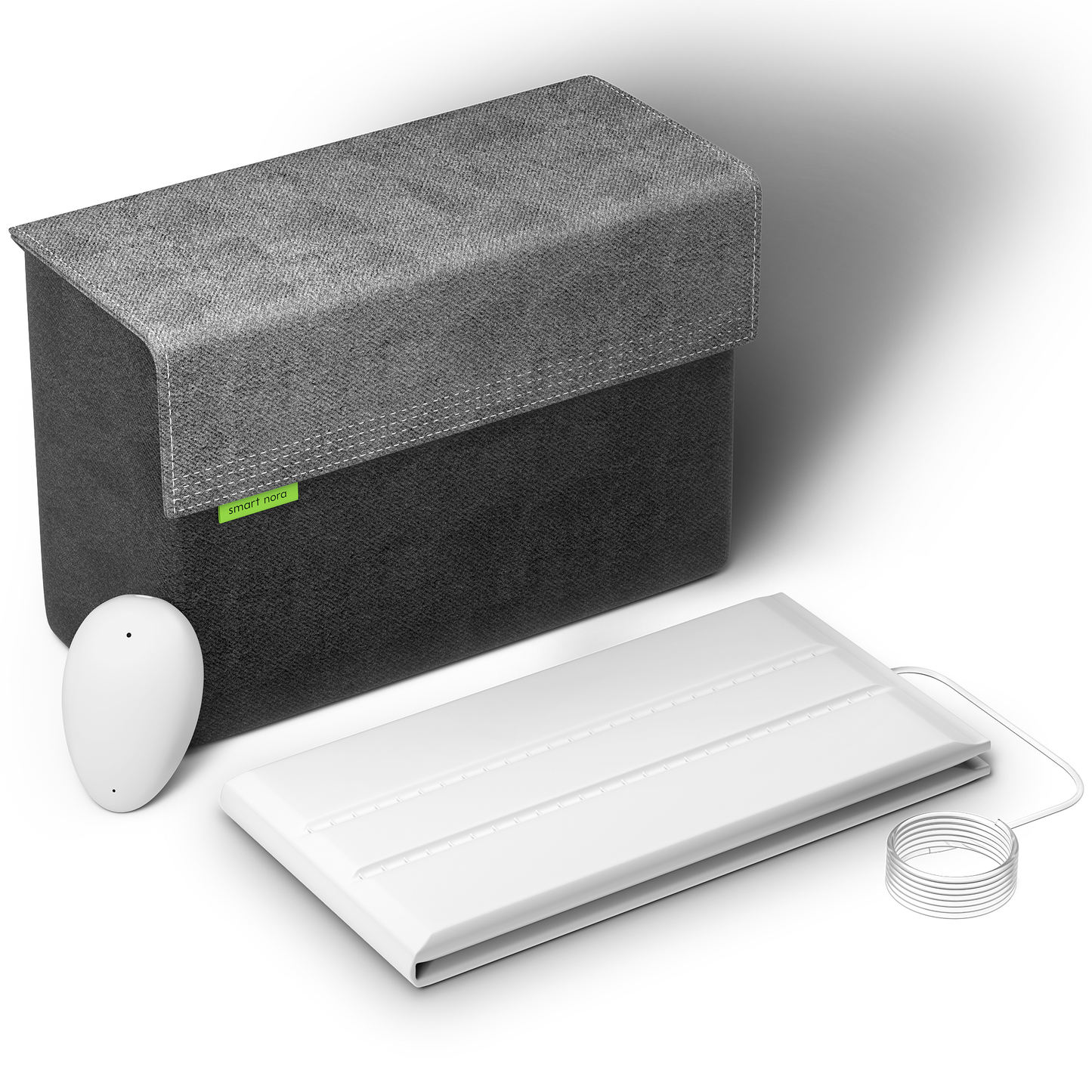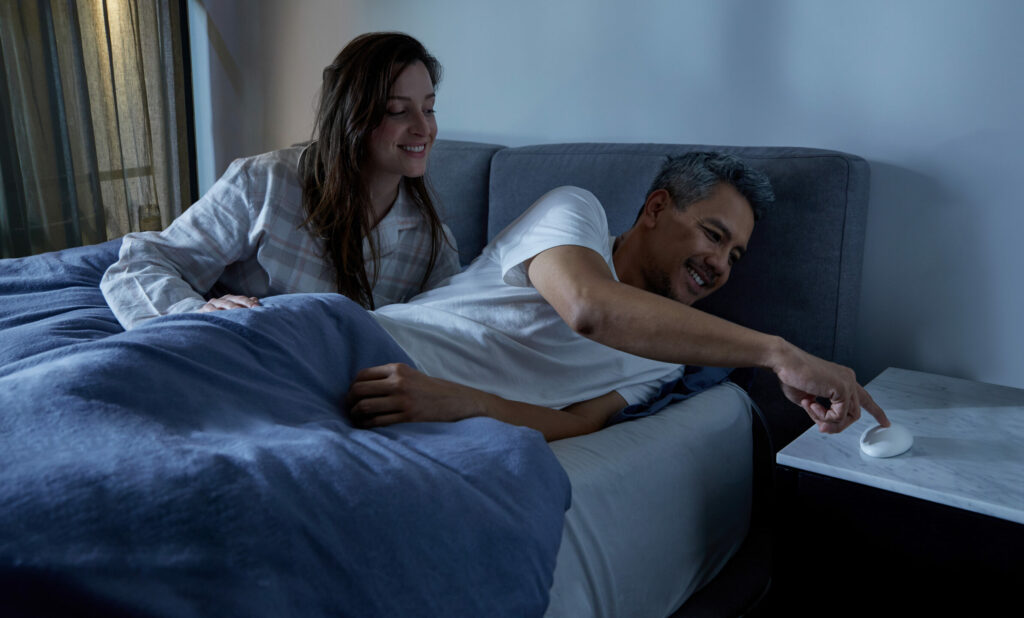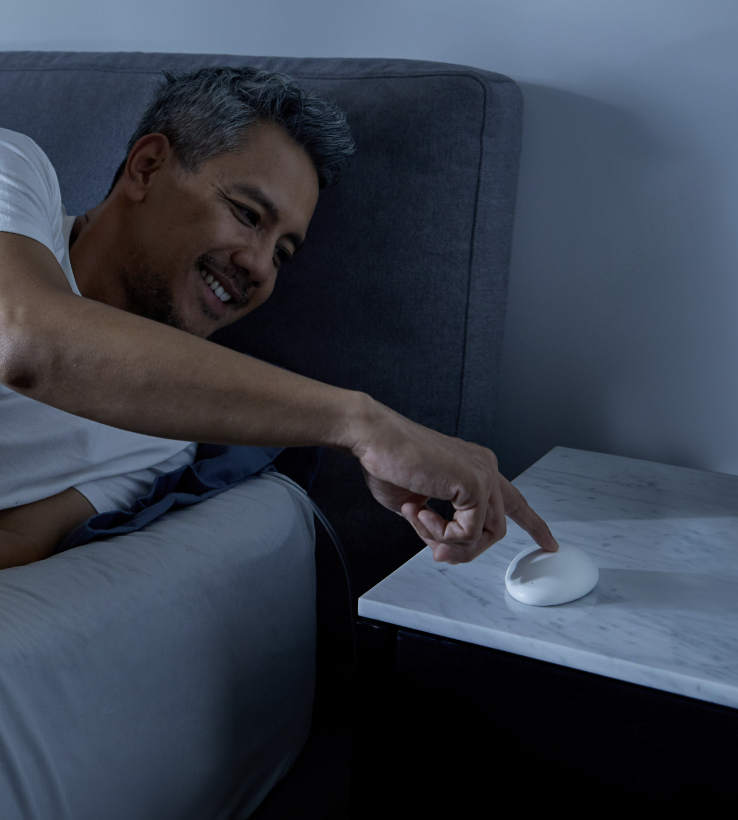
After your doctor slams the gavel and sentences you take a sleep study to figure out the root of your sleepytime problems, you’re left with a date on the calendar, wondering what’s next — what is the sleep study procedure? What do I bring? How do I prepare for a sleep study overnight? Let’s get right into it, because it’s probably a lot easier than you think!
First things first — What is a sleep study?
A sleep study is an overnight non-invasive exam that allows a specialist to monitor and diagnose nighttime behaviors for potential sleep disorders. While your primary care physician can steer you in the right direction, the information gathered by specialists (polysomnographic technologists, in fact!) during a sleep study can narrow down your sleep issues and help you get the appropriate treatment you need for restful nights ahead!
The most common sleep study procedure is called polysomnography — an overnight test and diagnostic tool which produces a polysomnogram. The test records a comprehensive report of biophysical changes that happen while you sleep, and various body functions are monitored over the course of (usually) one night to diagnose potential sleep disorders. This is different than a paid sleep study, in which your sleep patterns are studied not to help you specifically, but to test hypotheses relating to sleep science.
If this is putting you to sleep, here’s the TLDR: A sleep study monitors what your body does while you sleep so doctors can diagnose you and you can undergo treatment.
What can a sleep study help diagnose?
- Sleep Apnea
- Restless Leg Syndrome
- Excessive Daytime Sleepiness
- Narcolepsy
- Bruxism (tooth grinding)
- Sleepwalking
- And more!
What to expect when you’re expecting (a sleep study)
Many parameters get measured over the course of your big night. But don’t stress much about the test — it’s relatively simple (for you, not the technicians. You just have to sleep while they do the work!). When you arrive at a sleep center or hospital, you’ll be brought to a space that’s somewhat like a hotel room; bed, nightstand, usually a painting of a boat or calming countryside imagery. A technologist will attach various types of sensors and monitors to you but they’ll all be stuck to your skin with adhesives, so unless you’re getting additional blood work, there are usually no needles to or punctures to worry about! That’s a relief, huh?
It is not painful to participate in a sleep study!
You’ll go through your usual night routine, brushing your chompers and reading or watching a show, then you’ll sleep through the night as best as you normally do. A sleep technologist will monitor your activity through the night and in the morning you’ll be gently woken up and sent on your way! The results will be analyzed (usually by your primary care physician) and hopefully you’ll get to the bottom of what’s causing your sleep difficulty in a week or two. It’s that simple!
Now, you may be picturing a room full of weird machines and the hum and beeping of electronics — a villain’s underground science lab — and wondering, “what if I can’t sleep during a sleep study,” but fear not! The overwhelming majority of those who take part are able to fall and stay asleep (at least enough to get your necessary results). It all takes place in a quiet, relatively simple bedroom setting that feels more like a hotel than a hospital (minus wearing EEG electrodes on your head).
Even basic sleep studies can diagnose a variety of sleep disorders — the sensors and monitoring equipment measure and record a wide variety of things to help understand what your underlying sleep issues may be.
What does a sleep study show?
- Blood Oxygen Levels
- Brain Waves
- Breathing rates & Patterns
- Eye Movement and REM cycles
- Heart Rate & Rhythms
- Body Positioning & Limb Movement
- Snoring Volume and Frequency
- And more!
All of this data is collected while you snooze away. It’s a process that leaves your doctor with the information they need to properly diagnose if you have a sleep disorder or other underlying problem that can’t be caught with a standard doctor’s visit.
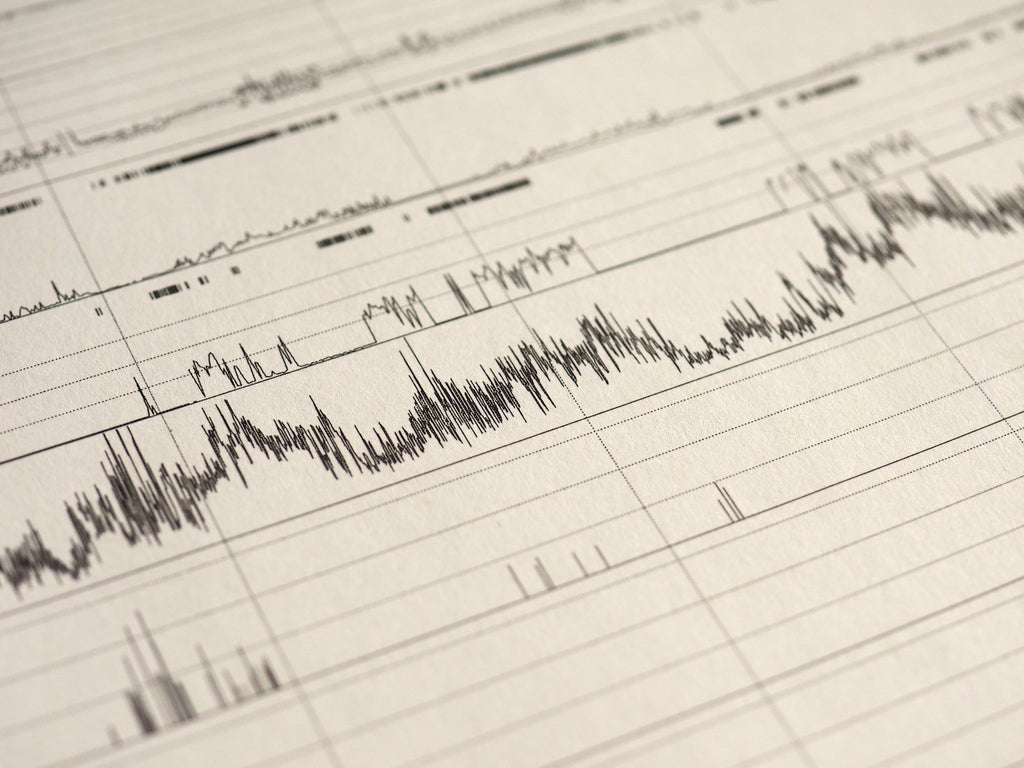
Prepare for the Big Test
It’s not much different than your average hotel stay. Think of it like a sleep science-themed slumber party (say that five times fast!). You’ll usually be asked to arrive an hour or two before your bedtime so there’s ample time to get hooked up to sensors and wind down for the night.
On the day of, try to follow your regular routine as much as possible, avoiding napping and caffeine after lunch, and make sure not to use hair sprays and gels that interfere with the equipment (ask about this if you’re not sure).
When you arrive, you’ll usually fill out a pre-sleep questionnaire before a technologist places electrodes on your head and body. An elastic belt goes around your chest and/or stomach to record your breathing patterns and a small clip goes over your finger to monitor your blood oxygen levels. Remember — this is painless! The check-in process can take anywhere from 30 to 90 minutes, but then it’s time to relax! Read a book, watch something, or relax, following the technologist’s recommendation, of course.
Make sure to bring
- Comfortable pajamas to sleep in
- Your dental care kit
- Something to read or relax with
- Clean clothes for the next day
- A positive attitude!
...And when you wake up, you’re home free! It usually takes a week or two to get information back from your primary care physician but when you do you’ll have a much better understanding of how to get the sleep you deserve. Going to a sleep study can seem intimidating at first, but it’s a relatively simple process. Now you just need to prepare for better sleep ‘cause what does a sleep study tell you if not the answers to your nighttime problems?






